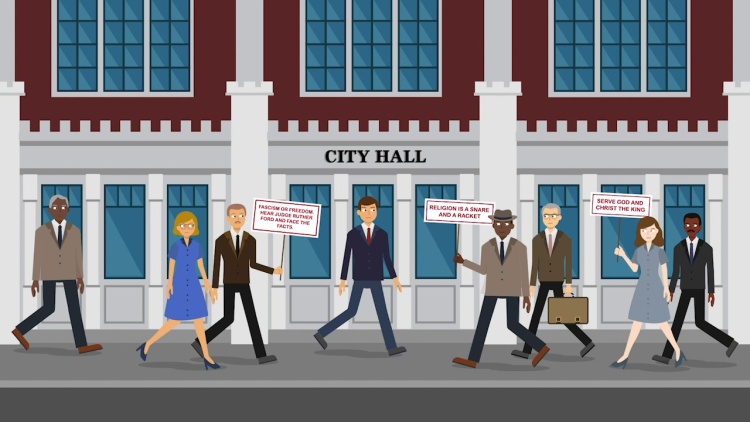Cox v. New Hampshire
United States Supreme Court
312 U.S. 569 (1941)
- Written by David Schleider, JD
Facts
In New Hampshire, the City of Manchester had a statute that required a special license to stage a parade or procession. In 1939, a group of over 60 people (defendants) planned a protest in the business district of Manchester. The defendants split into groups and walked in a single-file line on the city sidewalks, holding signs and distributing leaflets. Although the protest did not breach the peace, the defendants’ march interfered with the public use of the sidewalk. The defendants were aware of the statute requiring a license to parade but did not attempt to obtain a license. The defendants were charged and convicted under the statute for parading on public streets without a license. The state court held that the licensing authority was not given arbitrary power and that the regulation was a reasonable time, place, and manner restriction on speech. The state supreme court affirmed the conviction. The defendants appealed their convictions to the United States Supreme Court.
Rule of Law
Issue
Holding and Reasoning (Hughes, C.J.)
What to do next…
Here's why 905,000 law students have relied on our case briefs:
- Written by law professors and practitioners, not other law students. 47,100 briefs, keyed to 995 casebooks. Top-notch customer support.
- The right amount of information, includes the facts, issues, rule of law, holding and reasoning, and any concurrences and dissents.
- Access in your classes, works on your mobile and tablet. Massive library of related video lessons and high quality multiple-choice questions.
- Easy to use, uniform format for every case brief. Written in plain English, not in legalese. Our briefs summarize and simplify; they don’t just repeat the court’s language.





